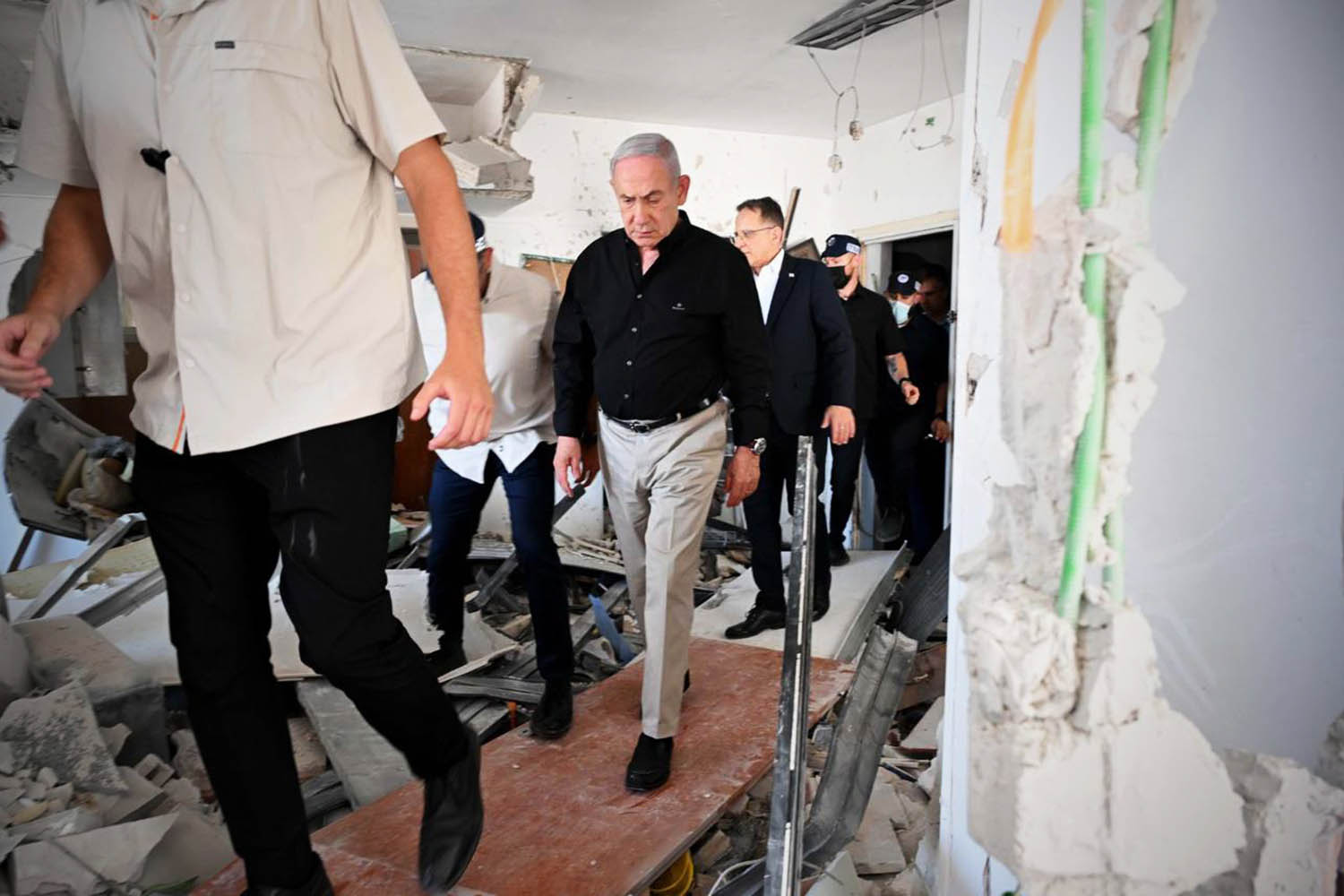In the earliest hours of Friday morning, Israeli Prime Minister Benjamin Netanyahu took the greatest gamble of his career and probably of his life, launching Israel’s colossal military attack on Iran.
The severity of the assault leaves no doubt about his intention to re-shape regional politics for ever. Netanyahu is gambling on behalf of the whole world: will the war finally crush Iran’s regime and re-shape the Middle East for the better, or will it ignite a grand-scale Middle East war, dragging local actors and great powers behind it?
But Israelis reeling from the shocking devastation over the last two days will be asking a simpler question: will the war make them safer? And like all things in Israel, even existential security is filtered through the lens of politics.
Israeli society enters this fresh war with a profound crisis of trust between the leadership and the people of Israel. Society is riven no less by deep hostility between parts of the population itself.
The government Netanyahu formed in late 2022 was unpopular within weeks of its election, sparking huge protests against the plans to sabotage judicial independence in Israel. The country’s failures to prevent or halt October 7 led to an immediate, still deeper plunge in support for the government, the prime minister, his party and the coalition parties in general – the opposite of the “rallying effect” most countries experience during wartime.
The rift over the fate of Israel’s roughly 50 remaining hostages held by Hamas in Gaza out of the original 251 is so profound, its full effects are not yet known. Surveys cannot capture the bitter anguish on the streets and in weekly demonstrations, but they repeatedly show that strong majorities would end the war to get them back.
While supporters of the government – a large minority in most polls – revel in the agenda of conquering territory and fulfilling messianic dreams, the remainder of Israelis are ever more furious at Netanyahu for his unending assault on good governance and Israeli institutions. The long list includes suspicions that Netanyahu’s closest advisers were bought by Qatar to advance its PR influence, as well as his attempt to fire the head of Israel’s intelligence agency investigating the case, in defiance of both the attorney general and the supreme court.
Israelis are beside themselves that his government has failed to draft Israel’s ultra-Orthodox – with their collective historical military exemption – while their loved ones fight, kill and die in the hellhole of Gaza. And instead of running the country, Netanyahu spends hours of his days in a Tel Aviv courtroom, giving testimony in his trial for three counts of corruption, or dragging the country through last week’s fleeting coalition crisis.
Media-commissioned polls regularly ask the public whether Netanyahu’s wartime decisions are based on substantive considerations such as the hostages, or his own political self-interest. The majority regularly cite his self-interest. What kind of moral authority does Netanyahu have to lead the country through this fresh and unprecedented war?
Yet if there’s one development with the power to change his image in the eyes of his people, it is war on the regional fronts.
Newsletters
Choose the newsletters you want to receive
View more
For information about how The Observer protects your data, read our Privacy Policy
In April 2024, Israel assassinated a top Iranian commander in Damascus; followed in July by the daring assassination of Hamas political leader Ismail Haniyeh in Tehran; the September pager attacks on thousands of Hezbollah operatives in Lebanon, topped by the killing of Hezbollah’s veteran leader, Hassan Nasrallah.
Israelis could not decide which was more dazzling. Almost precisely from the Damascus strike in April, Netanyahu’s poll numbers began to climb. Israelis got a boost of morale at the show of strength they felt Israel had lost.
I suspect something deeper: Israelis seem to view these external enemies as less ambiguous than the Palestinian issue. For many Israelis, the West Bank, Gaza and East Jerusalem represent the greedy dreams of religious fanatics, its deepest domestic wounds and rifts that cost a beloved prime minister his life. The Israelis protesting in 2023 knew that the government’s assault on Israel’s democratic institutions was aimed at advancing its messianic aims, even if they didn’t internalise that a permanent authoritarian regime over Palestinians would inevitably destroy democracy.
It's far easier to rally against Iran and its proxies – violent, aggressive actors acting on their own fundamentalist dreams of power and conquest in the Middle East. Israelis who huddled in shelters on Friday and Saturday, watching deadly missiles fall on their cities, will be united by fear and solidarity, and many will laud Netanyahu as Israel’s forever leader for fighting Iran.
As alerts poured in from every corner of the country warning of missiles, Israelis dutifully sent memes on social media. One showed a huge mock New York Times headline that read: “Three things now visible from space: The Great Wall and Bibi’s Two Balls.”
But rallying effects also fade – ask George HW Bush after the first Iraq war, when he lost the 1992 elections; or Netanyahu’s favourite comparison, Winston Churchill, routed after his lauded stewardship during the second world war.
It would be wrong to suggest that Netanyahu would be dallying in image and politics at such a grave time. But that doesn’t mean it’s not on his mind.
Photograph by Avi Ohayon /Israel GPO/ Getty Images
